Most Popular Tour Package to Explore Culture and Festival of Tibet
Tibet is vast, and the Tibetan culture is vaster and diverse. The Buddhism is the soul of Tibetan culture, and appears in almost every aspect of people's life. Our Tibet culture tours take you to discover local's living, trace the origination of Tibetan civilization, explore the greatest Buddhist temples, etc. If you want to experience the overwhelming festivals, you have to visit in the certain days. So make an early plan is very necessary.
-
Tibetan Culture
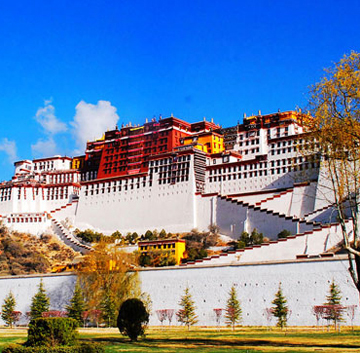
-
Tibetan Culture
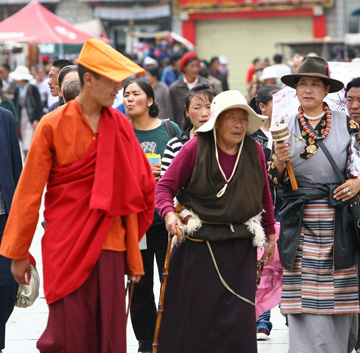
-
Tibetan Culture

-
Tibetan Culture

-
Tibetan Festival
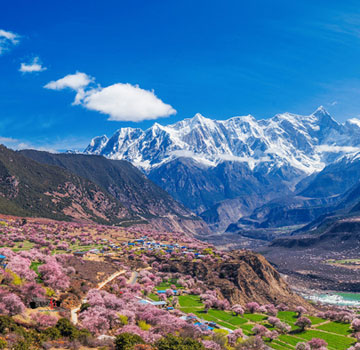
-
Tibetan Festival
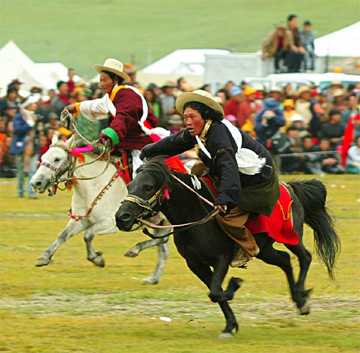
-
Tibetan Festival
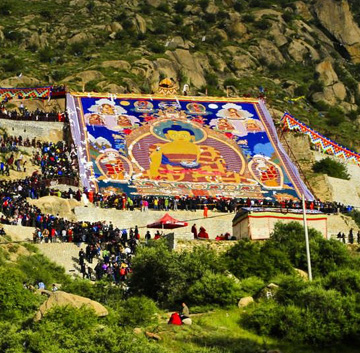
-
Tibetan Festival
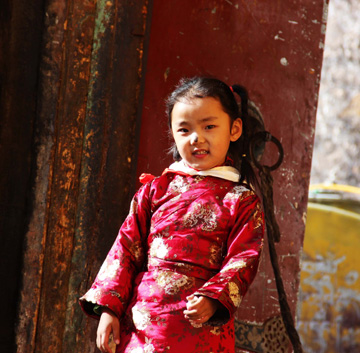
Tibetan Culture and Festivals
One of the most important reason for people traveling to Tibet is its unique culture. So what are the features of Tibetan culture? Festivals are regarded as the best expression of the culture of a place, so what are the most important festivals in Tibet?
Learn briefly about Tibet
Tibetan history
Research shows that there already were humans inhabited in Tibetan Plateau more than 21,000 years ago. Contemporarily, immigrants from northern China joined the locals, and evolved to today’s Tibetan people. The earliest civilization with historical text is the Zhang Zhung culture before 1st century BCE in the Guge, Ngari region of Tibet which is the home of the Bön religion. Until 7th century, Tibet was united by the king Songtsän Gampo (604–650 CE) as Tubo Kingdom, and started to grow and developed quickly on culture, agriculture, social system, etc. The Tibetan Buddhism was also established during Tubo Kingdom. As the punishment of Tubo in 9th century, Tibet had been divided by tribes in different regions in Tibet until subdued by Mongol Empire – Yuan Dynasty. Since Yuan, Tibet were under administration of empires of China, such as Ming, Qing, etc. Now, Tibet is an autonomous region of the People's Republic of China.
Tibetan culture is unique and charming
Tibet has a unique culture which is developed from ancient time under the spectacular geography and climate of Tibetan plateau. During its development, the neighboring countries, such as Nepal, India and China played very important roles as infiltration. Due to the remoteness and inaccessibility of the Tibetan plateau, this unique culture has been preserved very well, and has a strong influence on all Tibetans around the world.
Tibet has a systematic culture with its own language, character, religion, medicine, literature, arts, festivals, etc. Buddhism is the essence of Tibetan culture. You can see monasteries and temples everywhere you reach. Tibetan people are friendly, hardworking and intelligent.
Tibetan Festivals
It seems that people in a place in the world like Tibet which is rich in culture and blessed by Buddha always like to celebrating different kinds of festivals and ceremonies. In Tibet, locals peoples or the monks celebrate festivals almost every month, and there might be several in a single month. The theme of each festival may differ from Buddhism worship to harvest celebration, sports, ethnic, etc. The festivals are the foundation of Tibetan folk culture, a witness of the splendid history of Tibet and the creativity of Tibetan people.
Tibetans celebrate festivals according to the Tibetan Calendar which generally has a gap of within 30 days compared to Chinese Calendar. Most festivals are organized in the influential monasteries, such as Jokhang Temple, Drepung Monastery, Palcho Monastery, Reting Monastery, Tsurphu Monastery, etc. The celebrations and ceremonies usually last from one day to weeks. The Tibet Losor (New Year Festival) and Shoton Festival are two most important festivals in all Tibetan regions, including Tibet, Kham, Amdo, etc.

 Karen
Karen Wonder
Wonder Jack
Jack Rita
Rita Johnson
Johnson Vivien
Vivien Wing
Wing Ariel
Ariel Leo
Leo Tracy
Tracy Evelyn
Evelyn April
April Phoebe
Phoebe Kelly
Kelly Shirley
Shirley Reya
Reya Juliet
Juliet Elk
Elk Karina
Karina Tammy
Tammy Felix
Felix Sean
Sean